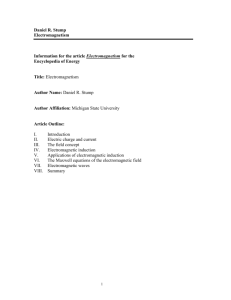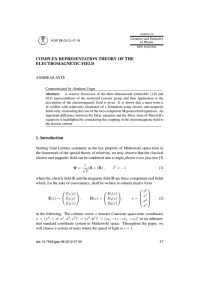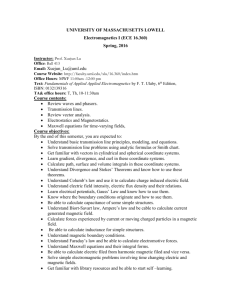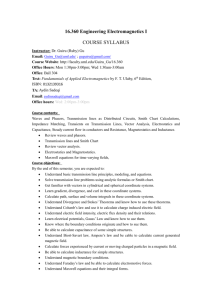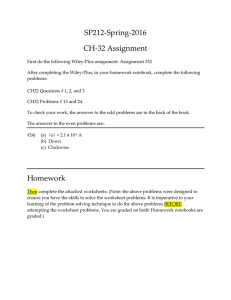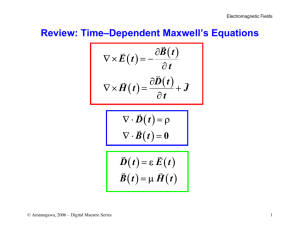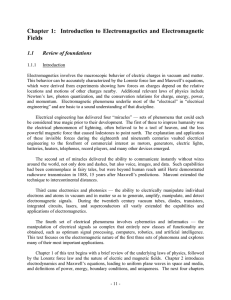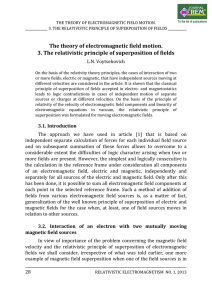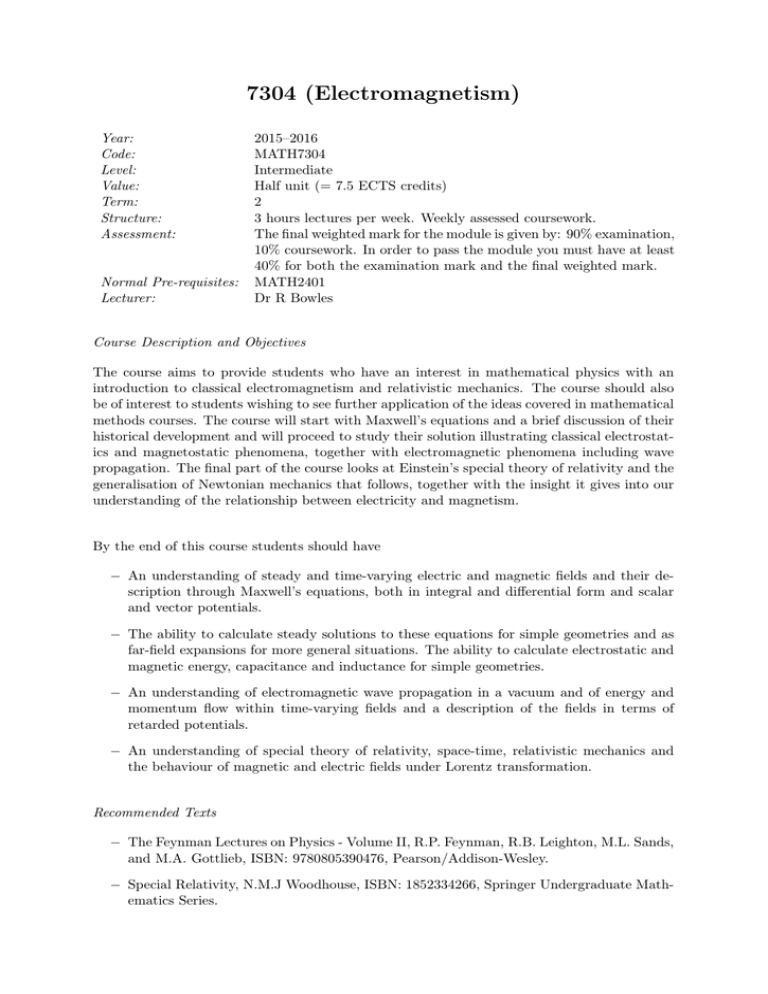
7304 (Electromagnetism)
Year:
Code:
Level:
Value:
Term:
Structure:
Assessment:
Normal Pre-requisites:
Lecturer:
2015–2016
MATH7304
Intermediate
Half unit (= 7.5 ECTS credits)
2
3 hours lectures per week. Weekly assessed coursework.
The final weighted mark for the module is given by: 90% examination,
10% coursework. In order to pass the module you must have at least
40% for both the examination mark and the final weighted mark.
MATH2401
Dr R Bowles
Course Description and Objectives
The course aims to provide students who have an interest in mathematical physics with an
introduction to classical electromagnetism and relativistic mechanics. The course should also
be of interest to students wishing to see further application of the ideas covered in mathematical
methods courses. The course will start with Maxwell’s equations and a brief discussion of their
historical development and will proceed to study their solution illustrating classical electrostatics and magnetostatic phenomena, together with electromagnetic phenomena including wave
propagation. The final part of the course looks at Einstein’s special theory of relativity and the
generalisation of Newtonian mechanics that follows, together with the insight it gives into our
understanding of the relationship between electricity and magnetism.
By the end of this course students should have
− An understanding of steady and time-varying electric and magnetic fields and their description through Maxwell’s equations, both in integral and differential form and scalar
and vector potentials.
− The ability to calculate steady solutions to these equations for simple geometries and as
far-field expansions for more general situations. The ability to calculate electrostatic and
magnetic energy, capacitance and inductance for simple geometries.
− An understanding of electromagnetic wave propagation in a vacuum and of energy and
momentum flow within time-varying fields and a description of the fields in terms of
retarded potentials.
− An understanding of special theory of relativity, space-time, relativistic mechanics and
the behaviour of magnetic and electric fields under Lorentz transformation.
Recommended Texts
− The Feynman Lectures on Physics - Volume II, R.P. Feynman, R.B. Leighton, M.L. Sands,
and M.A. Gottlieb, ISBN: 9780805390476, Pearson/Addison-Wesley.
− Special Relativity, N.M.J Woodhouse, ISBN: 1852334266, Springer Undergraduate Mathematics Series.
− Electricity and Magnetism, W.N. Cottingham and D.A. Greenwood, ISBN: 9780521368032,
Cambridge University Press
Detailed Syllabus
− Electric charge and field. Superposition. Electric current. Magnetic fields. Lorentz force
on a moving charge.
− A statement of Maxwell’s equations in a vacuum. Lack of magnetic monopoles. Charge
conservation. The displacement current. Integral forms of Maxwell’s equations.
− Electrostatics. Gauss’ theorem. Electric Potential. Green’s functions for the Laplace
equation. The steady electric field for discrete and continuous distribution of charge.
Multipole expansions. Conductors. Surface charge. Boundary conditions at a surface.
Energy. Capacitance.
− Electric Currents. Magnetostatics. The Coulomb Gauge. Magnetic Potential. BiotSavart Law. Boundary conditions at a surface. Magnetic force on conductors. Ampere’s
Law. Electromagnetic Induction. Magnetic Energy. Self-inductance. Relaxation of a
charge distribution within a conductor.
− Electromagnetic waves. Energy and momentum transport in an electromagnetic field.
The Poynting vector. The Lorentz Gauge. Wave equations for the electric and magnetic
potential. Retarded time.
− Special relativity. Frame invariance. Tensors and metrics. Invariance of dx2 − c2 dt2 .
Lorentz transformations, transformation of velocities. Proper time. Relativistic mechanics. Equations of electromagnetism in space-time.
April 2015 MATH7304

